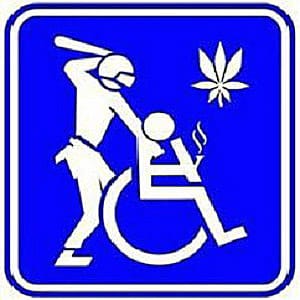The latest Rasmussen poll of 1,000 likely voters conducted nationwide resulted in 56% of those polled believing cannabis should be legalized and regulated similar to alcohol and tobacco. Are we on the verge of ending prohibition, or is it just a pipe dream?
Now more than ever there are sizeable organizations such as the American Civil Liberties Union, the National Association for the Advancement of Colored People, the Drug Policy Alliance, the Global Commission on Drug Policy and Law Enforcement Against Prohibition (L.E.A.P.) and a few brave politicians speaking out against the failed drug war. Retired police detective and active L.E.A.P. member Howard Woodridge stated “Envision a world where crime is cut in half, terrorists don’t make money selling drugs and children aren’t employed by the drug trade, all are possible when we find the courage to end our prohibition.” It sounds simple enough, but what about the businesses and organizations that profit from the drug war?
In 2011 the United States spent approximately $44 billion on an unsustainable war on drugs in law enforcement, incarceration, court and other justice systems costs,(Office of National Drug Control Policy, National Drug Control Strategy) which in turn drains public resource funds away from public health and social programs that actually help individuals and communities. If we ended prohibition tomorrow couldn’t the government just reallocate those funds? Well in reality the special interests involved delves much deeper than merely keeping law enforcement departments employed. The list of companies and special interest groups that support the drug war, both literally and monetarily, is vast and powerful. Big Pharma doesn’t want American citizens to be able to grow an herb that has been quoted as being the “wonder drug” in our own backyards. What about global bankers and private military companies and the private industrial prison complex? These are just a few of the multitude of companies that are profiteering from this futile drug war.
It can be discouraging when you look at all the opposing forces ready to fight to the end in favor of prohibition. Or is it? When we compare the attempt to end the drug prohibition of today, to the ending of the alcohol prohibition in 1933, we have to keep one very important aspect in mind; the battle began at the state level. And now with three states having legalization initiatives on the ballot, with Colorado and Washington polling very well, it looks as if the tables may be turning in our favor. Another instrumental factor in passing the 21st Amendment was the female voters, which when coupled with educating our senior citizen voters could play a crucial role in bringing an end to this generation’s prohibition.
The simple fact is prohibition is a total failure and more and more citizens are learning the truth every day. If you believe the “Drug War” harms more people than it helps, then do your part by educating yourself and others. And remember, knowledge is power, but only when applied.









